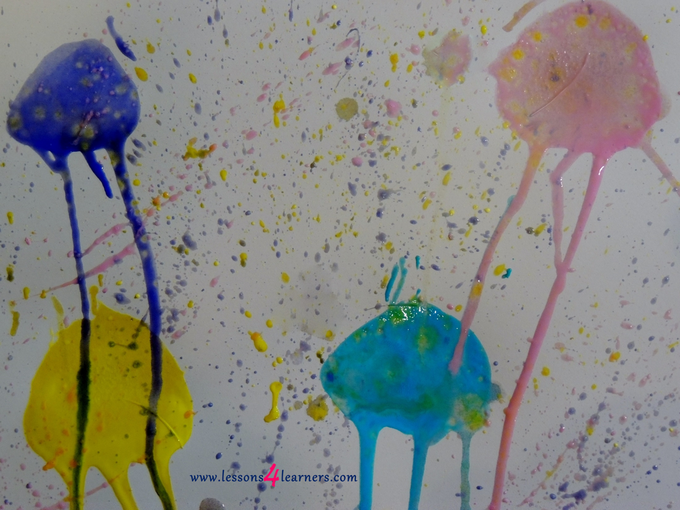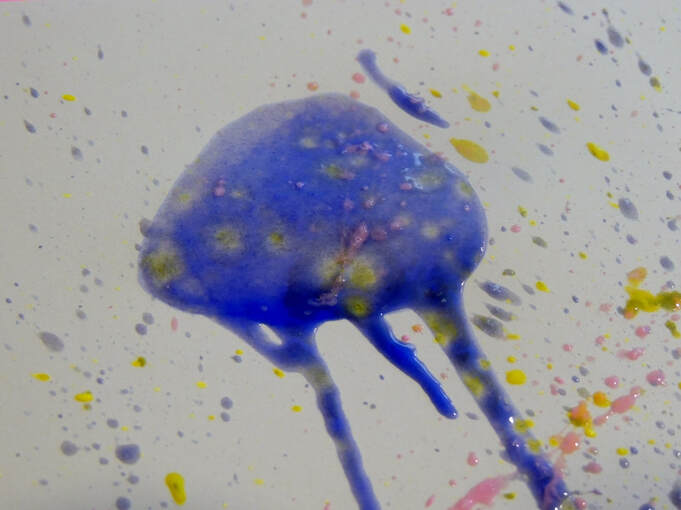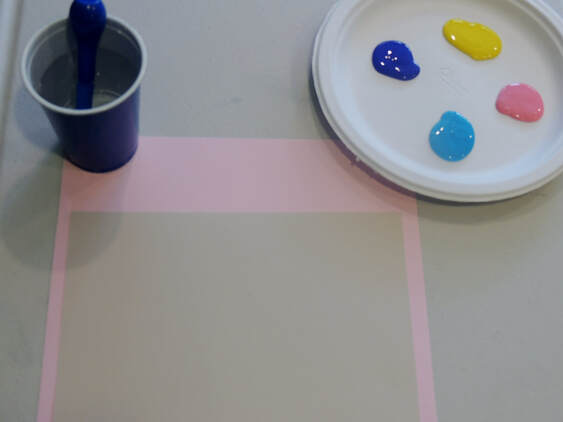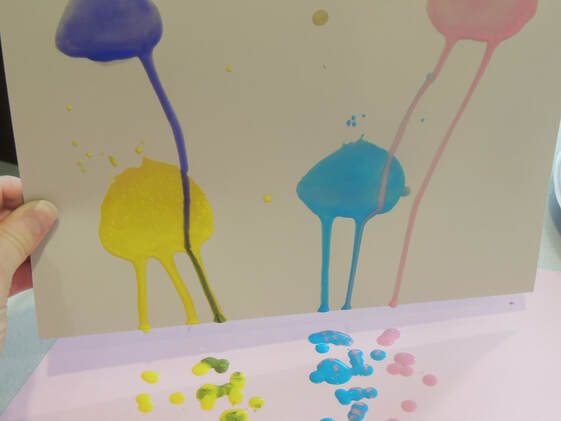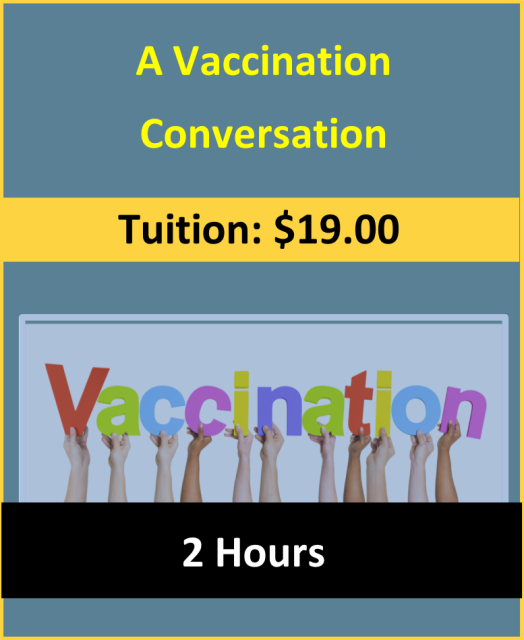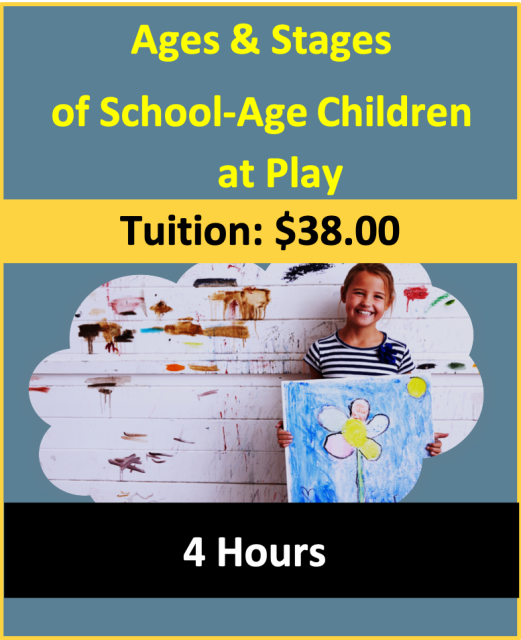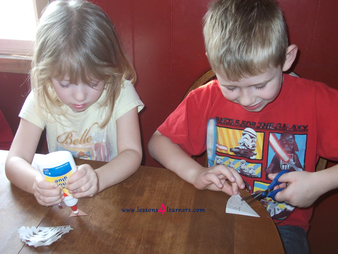Jellyfish Painting
Lesson Plan:Activity:
Jellyfish Painting
Lesson plan developed by Ms. Erika Geelhoed, BA Ed
Age Group:
* Lesson plan objective and assessment can be adapted to use this activity with preschoolers.
Objectives:
Children will:
EALR 1
|
|
The Washington State K–12 Arts Learning Standard:
EALR 1: The student understands and applies arts knowledge and skills in dance, music, theatre, and visual arts
Materials:
|
Procedure:
- Begin lesson by showing the children how to create the drippy jellyfish.
- They will try it on their own after you show them the new technique.
- Paint the jellyfish head onto paper (the wetter the better).
- Tilt the paper so that the paint runs down the page creating tentacles.
- Splatter paint by flicking the paintbrush to create “bubbles.”
- Invite the children to try the new style of painting on their own.
- You can ask them questions while they are painting to gain insight on their thoughts about the activity and extend the lesson.
“What other things could you paint using this technique?”
“What would you title this piece and why?”
“What did you think of this style of painting?”
“What would you title this piece and why?”
“What did you think of this style of painting?”
Assessment:
- Observe and record the children as they create their piece. Were they able to create jellyfish using this technique? Did they try something different? What did they think about the process and finished piece?
Click on the course icon for enrollment information.
- Supporting Creativity in School-Age Children
|
Children who are creative are willing to try new ways of doing things. They see more than one possibility in how to play a game or use an art material. They are curious about how things work and why things happen as they do. They are willing to take risks. When they try something new and it doesn't work, they learn from their mistakes, and try another approach.
One of the easiest ways to promote children's creativity is to fill the environment with open-ended materials. Items children can use in a variety of ways are ideal for school-age programs because they are interesting to children of different ages and stages of development and trigger their imaginations. |
- Provide open-ended materials with which children can do many things. Arrange the environment so children can spread out, explore, and be messy.
- Provide sufficient storage space for projects and creations that cannot be completed in one day. Allow creations to stay in place for several days so children can continue using them and possibly expand them.
- Provide sufficient time in the daily schedule for children to make plans and carry them out. Follow a daily schedule that includes long blocks of time when children are free to organize their own games and activities without adult involvement.
- Surround children with examples of creative work - reproductions of paintings and sculptures, award-winning children's literature, photographs of architectural treasures, biographies of investors and scientists, a wide variety of music on tapes and CD's.
- Store materials and equipment where children can easily select, replace, and care for them without adult assistance.
- Offer materials that allow children to explore subjects and interests introduced at school or through experiences such as field trips.
